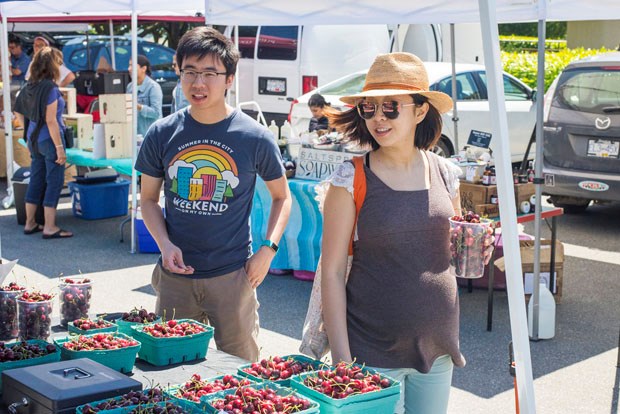She could go on at great length explaining how it’s flawed.
That’s what B.C. Agriculture Minister Lana Popham said in an interview with the Optimist about a recent report by the right-wing think tank Fraser Institute that throws cold water on the farm-to-table movement. The report concludes that despite common misperceptions, locally-grown food isn’t better for the environment, doesn’t provide a more stable food supply and it isn’t necessarily safer to eat.
“It’s not surprising from the Fraser Institute to see what was written but it’s also full of flaws. Some of it is based on a different value system rather than facts,” said Popham.
The report, The Myths of Local Food Policy: Lessons from the economic and social history of the food system, was written by Pierre Desrochers, an associate professor at the University of Toronto, Mississauga, and Fraser Institute senior fellow.
The study finds that locally-grown food often increases prices for consumers, since the high cost of land in or near big cities means urban agriculture is expensive. The report also notes that due to the competitive nature of most agricultural markets, imports must achieve the best quality for the price, resulting in overall lower prices for imported foods.
The report concludes, “By promoting the increased production of local food that does not offer a compelling quality/price ratio while shunning modern production and processing technologies, activists ensure that our food supply will become more expensive, environmentally damaging and hazardous to our health than is presently the case.”
Popham said what makes the report less credible is the idea that a global food system is the only way to go, rather than a well-developed local food supply combined with a global market.
“When I look at some of the points they try to make, they’ve really left out what developing a local food system does for social capital and it’s a really positive product of human interaction. It allows us to create a different type of food culture on the ground in B.C. If you just rely simply on importing globally produced food, you really miss out on the aspects of agriculture that creates strong communities and strong social structures that people depend on. If you go up to rural British Columbia, you see that and when agriculture starts to get eroded, you really lose a lot of what they consider their community,” Popham noted.
She added the money that’s generated in a local economy tends to stay longer within that local economy, while regional food economies are also a great opportunity for innovative businesses to start.
Delta South MLA Ian Paton, the Liberal co-agriculture critic and a longtime Ladner farmer, said B.C. is home to a great array of farms, some farmers exporting around the world and others selling their products at local restaurants.
"Here in Delta, our Class A soils are some of the best in the province, which is why restaurants like White Spot source their potatoes exclusively from Delta farmers. I think all one has to do is look at the success and popularity of farmers’ markets across the province just like Ladner Village Market here in Delta to see that British Columbians are voting with their wallets and supporting local agriculture," he said.
Paton noted also took another shot at the NDP's legislative changes, saying they are stifling the business of farming in B.C.



